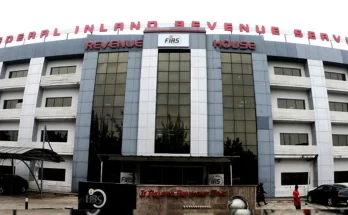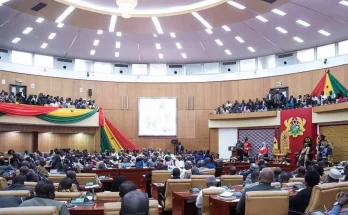Table of Contents
Ghana Proposes Major Tax Reforms. In a move described by tax professionals as one of the most comprehensive fiscal overhauls in recent years, Ghana’s government has proposed the removal of multiple existing taxes and significant reforms to its Value Added Tax (VAT) system.
These changes were highlighted during the recent presentation of the country’s 2025 Budget Statement to Parliament.
According to excerpts shared by Ghana’s Ministry of Finance, the government is positioning the reforms as part of a broader strategy to ease tax burdens, encourage compliance, and streamline administration.
Key Tax Measures Proposed in the 2025 Budget
Among the headline reforms is the abolition of the 10% withholding tax on lottery and betting winnings, popularly referred to as the “Betting Tax”. This measure had previously stirred controversy among the youth and digital economy stakeholders.
In addition, the 1% Electronic Transfer Levy (E-Levy), introduced in 2022 to tax mobile money and other electronic transactions, is slated for complete removal. The decision follows public discontent and concerns about financial exclusion, particularly among low-income users.
The Emission Levy, which applied to certain industries and vehicle owners, is also being scrapped. Tax authorities reportedly cited the need to promote green energy investment without overburdening businesses.
Another significant policy shift is the removal of the 1.5% withholding tax on income from unprocessed gold sales by small-scale miners. The Ministry noted that the repeal aims to support the livelihoods of artisanal miners while formalizing the sector.
Ghana also intends to abolish the COVID-19 Health Recovery Levy, signaling the winding down of pandemic-related fiscal measures.
VAT Reforms Signal a Shift in Collection and Coverage
One of the major adjustments under the VAT system involves the removal of VAT on motor vehicle insurance policies. Stakeholders in the insurance sector had earlier argued that taxing insurance products discouraged penetration in a country where coverage remains low.
Additionally, the government is planning to reverse the decoupling of the Ghana Education Trust Fund (GETFund) Levy and National Health Insurance Levy (NHIL) from the VAT base. This effectively means the levies will once again be calculated as part of the VAT, rather than separately.
The VAT flat rate scheme, which applied mainly to retailers and wholesalers, is also set to be scrapped. In its place, a uniform structure is expected to enhance transparency and reduce distortions in tax compliance.
Furthermore, the VAT registration threshold is proposed to be increased from the current GHS 200,000 in annual taxable supplies. This adjustment is aimed at exempting more micro and small enterprises from the obligation to charge VAT, thereby easing compliance pressure on informal businesses.
Taxation in Nigerian Telecom Sector: Mulls Reintroduction of 5% Telecom Tax
Levies Consolidation and Adjustments
In the energy sector, the Ministry revealed plans to review the Energy Sector Levies Act (ESLA). The review would consolidate existing levies such as the Energy Debt Recovery Levy, the Energy Sector Recovery Levy (Delta Fund), and the Sanitation and Pollution Levy into a single charge. Officials argue that this consolidation will simplify the levy structure and make collections more efficient.
Meanwhile, the Growth and Sustainability Levy, which applies to the gross production of mining companies, will see an increase from 1% to 3%, with its sunset clause extended to 2028. Similarly, the Special Import Levy will remain in force until 2028, as its expiration date is also being extended.
A Move Towards a Simpler and Inclusive Tax System
Fiscal analysts believe these proposed tax changes indicate a policy shift focused on reducing regressive taxes and supporting enterprise growth.
While the Ministry has framed the reforms as a pro-business and pro-recovery initiative, tax experts say their success will depend on how efficiently the measures are implemented and communicated to taxpayers.
For now, tax professionals, businesses, and civil society await the legislative process that will determine how and when these proposals take effect.




